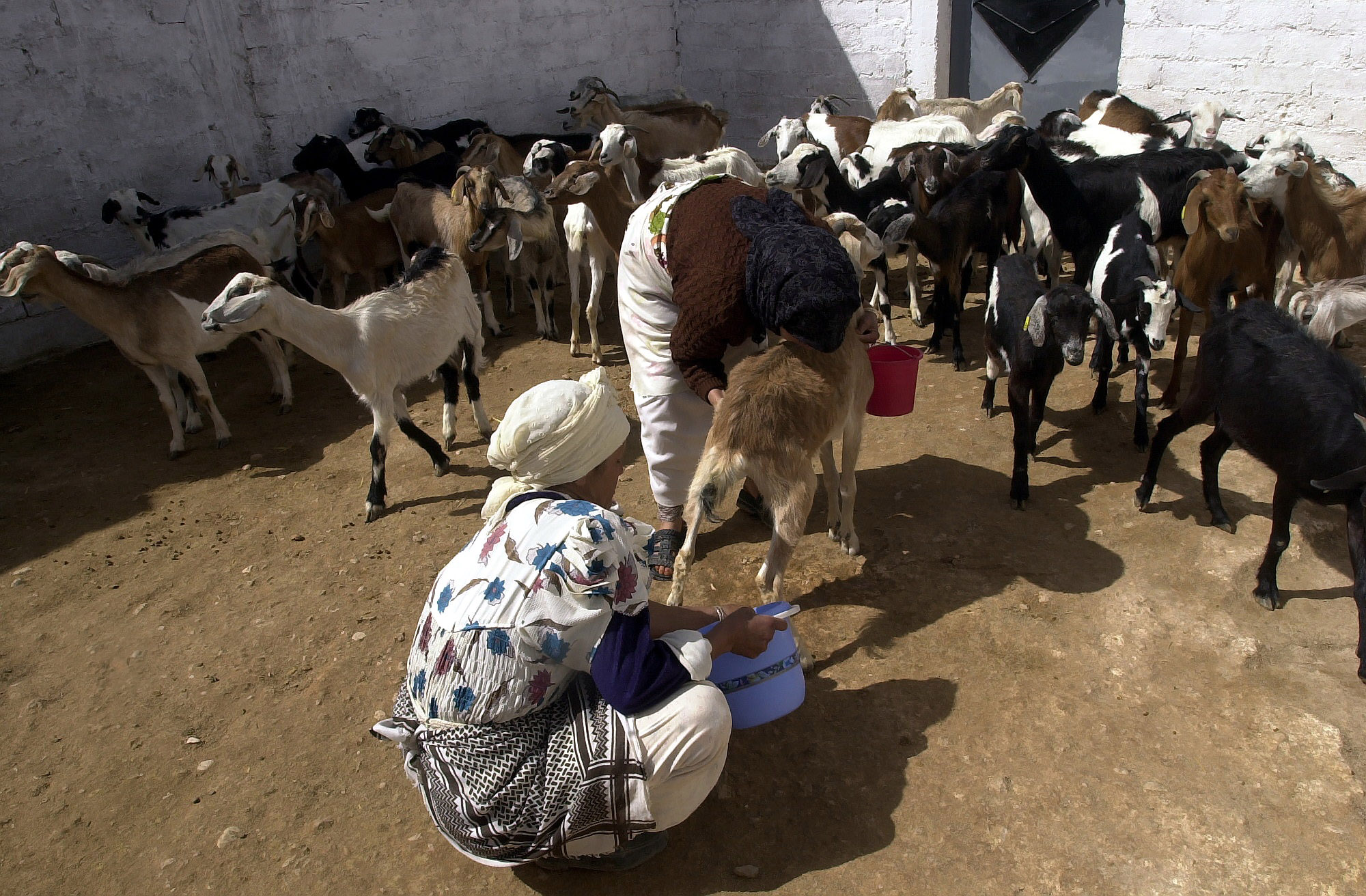FAO and Morocco to host training on reducing livestock emissions
FAO and Morocco collaborate to enhance national capacity in assessing and reporting greenhouse gas inventories and mitigation interventions.

©FAO/Djibril Sy
Livestock remain a pillar of Morocco’s agriculture and employ about 40 percent of the national workforce and 81 percent of the rural working population and jobs in agrifood industry. The sector has been affected by rising feed costs, increasing climate pressures such as a long drought and the challenges of adopting new technologies, resulting in the decline of productive herds. It significantly contributes to greenhouse gas emissions, particularly in the forms of methane from enteric fermentation and manure management systems.
As a participant in the Global Methane Pledge, Morocco has committed to cutting its methane emissions by 2030. In line with this goal, Morocco has developed long-term low-emission strategies and other sectorial policies to address climate change. In addition, FAO and the Government of Morocco are developing a national action plan to mitigate methane emissions from livestock sector. This effort will also contribute to the update of Morocco's nationally determined contributions (NDC).
There is a need to strengthen national capacity by adopting the Tier 2 methodological approach of the Intergovernmental Panel on Climate Change (IPCC) guidelines.
FAO and Morocco’s collaboration
By equipping stakeholders with advanced tools and methodologies, FAO and Morocco are now joining forces to reduce livestock emissions and boost resilience to climate change through sustainable livestock transformation.
FAO, in collaboration with Morocco’s Ministry of Energy Transition and Sustainable Development and the Ministry of Agriculture, Fisheries, Rural Development, Water and Forests, will hold a hands-on training focused on greenhouse gas (GHG) emissions assessment and reporting in line with Enhanced Transparency Framework. Taking place from 7 to 9 April in Rabat, the training workshop is part of the FAO project “Foster Methane Mitigation in the Agriculture and Livestock sectors” funded by the Climate and Clean Air Coalition. This hands-on training will equip national stakeholders to improve GHG inventory and design mitigation strategies aligned with livestock development objectives.
Training focus and objectives
Around 40 participants from government institutions, red meat and milk private sector, research organizations, civil society, and other key stakeholders in climate and livestock sustainability will attend the workshop. The trainings will feature interactive sessions and technical guidance on:
- Understanding methodologies to collect and compile livestock activity data for Tier 2 analysis.
- Conducting an assessment and reporting of direct GHG emissions using the Tier 2 approach of the 2019 refinement to the 2006 IPCC guidelines on national GHG inventory.
- Identifying and modeling methane mitigation strategies.
- Strengthening institutional collaboration for enhanced greenhouse gas reporting and policy integration.
Participants will gain practical skills in quantifying livestock emissions, analyzing mitigation options, and implementing climate-smart practices in the sector.
